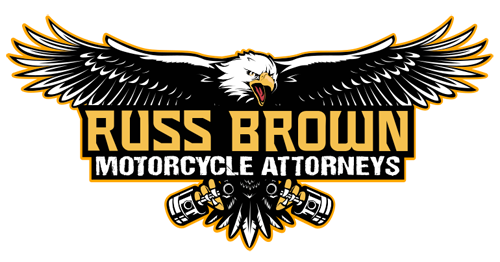Improving Your Riding Skills Starts Between the Ears
Written by Lee Parks
With all the efforts we spend making our bikes look cool and perform better, a critical part of the riding puzzle gets ignored: what my friend the engineer likes to call the seat/handlebar interface. While few would argue the safety benefits of improved riding skills, it’s perhaps even more important to have a good handle on what motivates us to do what we do on a bike. In other words, to understand the psychology of riding is one of the best things we can do to improve our odds of arriving in one piece at our favorite destinations. The three key areas of a rider’s mental state that I’d like to talk about are fear, concentration and right attitude.
Fear
What are you afraid of when riding? Typical responses include falling down, scratching your bike, looking bad in front of their peers, getting hurt, sliding out, etc. While those are all valid fears, interestingly, there is one fundamental fear that underlies all other fears. It is simply the concern that “I can’t handle it.” Only by acknowledging in verbal language that you can handle the consequences of whatever it is that you are afraid of, will you be in a position to not let the fear control or limit your actions. At that point, the fear will have little power over you as you will “own” it.
In order to help combat fear while riding, we must first understand how the brain processes it. You probably remember from biology class that the brain is made up of different parts. The two parts that we are most concerned with are the most primitive part of the brain—the brain stem and cerebellum, or “reptile brain”—and the most advanced part in human beings, the frontal lobes.
Biologists will tell you that the reptile brain concerns itself with the Four “Fs” of survival. They are Feeding, Fleeing, Fighting and, of course, Reproduction. The frontal lobes concern themselves with higher-thinking activities such as imagination, creativity, planning and intuition. The important thing to remember about your brain is that whenever you are utilizing the frontal lobes, you stay out of the reptile brain which is where fear resides. That is why riding instructors give you one specific thing to work on during each exercise so you can focus on that and not on your fears.
Best-selling author and late-night infomercial maven Anthony Robbins talks about exercising your “action muscle.” That way, when faced with uncertainty or doubt, you will be in the habit of performing, even in the face of fear. That’s why it’s important to practice getting outside of your comfort zone while riding. That doesn’t mean scaring yourself silly, but getting used to riding in the face of a small amount of fear. If you practice being able to feel some fear and do it anyway, when you find yourself in a really scary situation, you have a much better chance of not freezing up and/or target fixating because you practiced riding with some fear and turned it into a habit.
Concentration
Motorcycling has often been called the “lazy man’s Zen” because there is nothing quite like the fear of death to keep one focused on the moment. Combined with the two-wheeler’s constant need for balance, motorcycling forces you to pay attention, which can be both exhilarating and therapeutic at the same time.
Perhaps the best definition for concentration comes from three-time martial arts champion and motorcycle racer Ken Merena. He calls it “relaxed attentiveness.” That means being aware of your surroundings without stressing out your body. Not unlike how a fighter must be relaxed in order to throw a punch, the rider must be relaxed to properly execute an input. If your muscles are tense, they must first relax before they can move in a new direction. On a bike, the hesitation required to first relax before executing a new input could mean the difference between a successful maneuver and a crash.
This state of relaxed attentiveness without distractions is what racers and Olympic athletes call “being in the zone.” In this state actions happen without conscious thought. Every adult has experienced this state. For example, I would imagine that in the years you have been walking you have become such a proficient walker that your legs seem to walk themselves. Just like using a clutch used to take a lot of conscious thought, but now it can be done almost effortlessly, so too can the rest of your riding take on this Zen-like ease. Sports psychologists sometimes refer to this phenomenon as “muscle memory.” Here an athlete learns over time to trust the superior knowledge of the body to the relatively slow processing of linear thought. Of course, this takes lots of repetitive practice to be able to pull this off.
Right Attitude
In Japanese there is a word shoshin, which translates literally as “beginner’s mind.” This is the attitude of a child during the formative years when the majority of learning takes place. And this is the attitude to take to get the most benefit from any riding curriculum and exercises. Just like a child who has his eyes wide open soaking up all that comes his way, the beginner’s mind is always learning.
In his landmark book “Zen Mind, Beginner’s Mind,” Zen Master Shunryu Suzuki states “In the beginner’s mind there are many possibilities, in the experts mind, there are few.” Because everyone is to one degree or another an expert in a particular field, it’s easy to fall into this trap where you stop learning new things. Because you think you already know a particular subject, you’re not really present to what’s going on in the moment.
You can therefore define a beginner’s mind as one that lives in possibility rather than expectation. In other words, the beginner doesn’t have expectations as to what is going to happen, he simply stays open to all possibilities and deals with whatever comes his way.
With your fear held in check by proper concentration on specific riding practices and the right attitude, you’re now ready to work on some new skills.



















